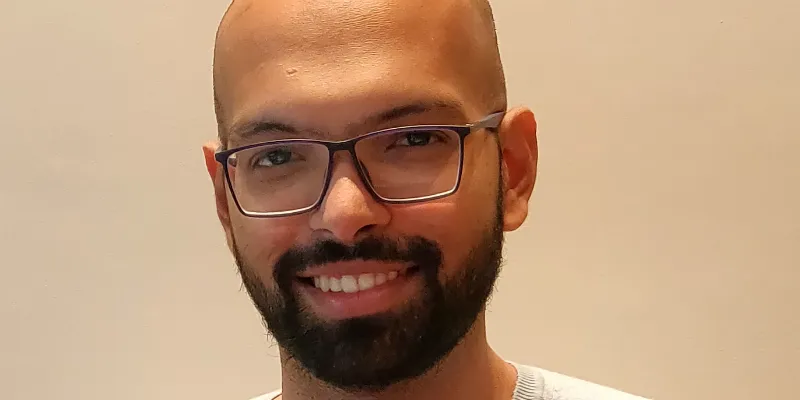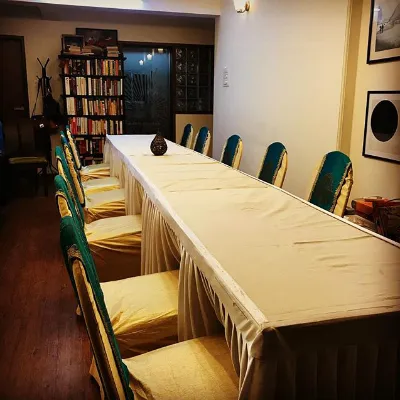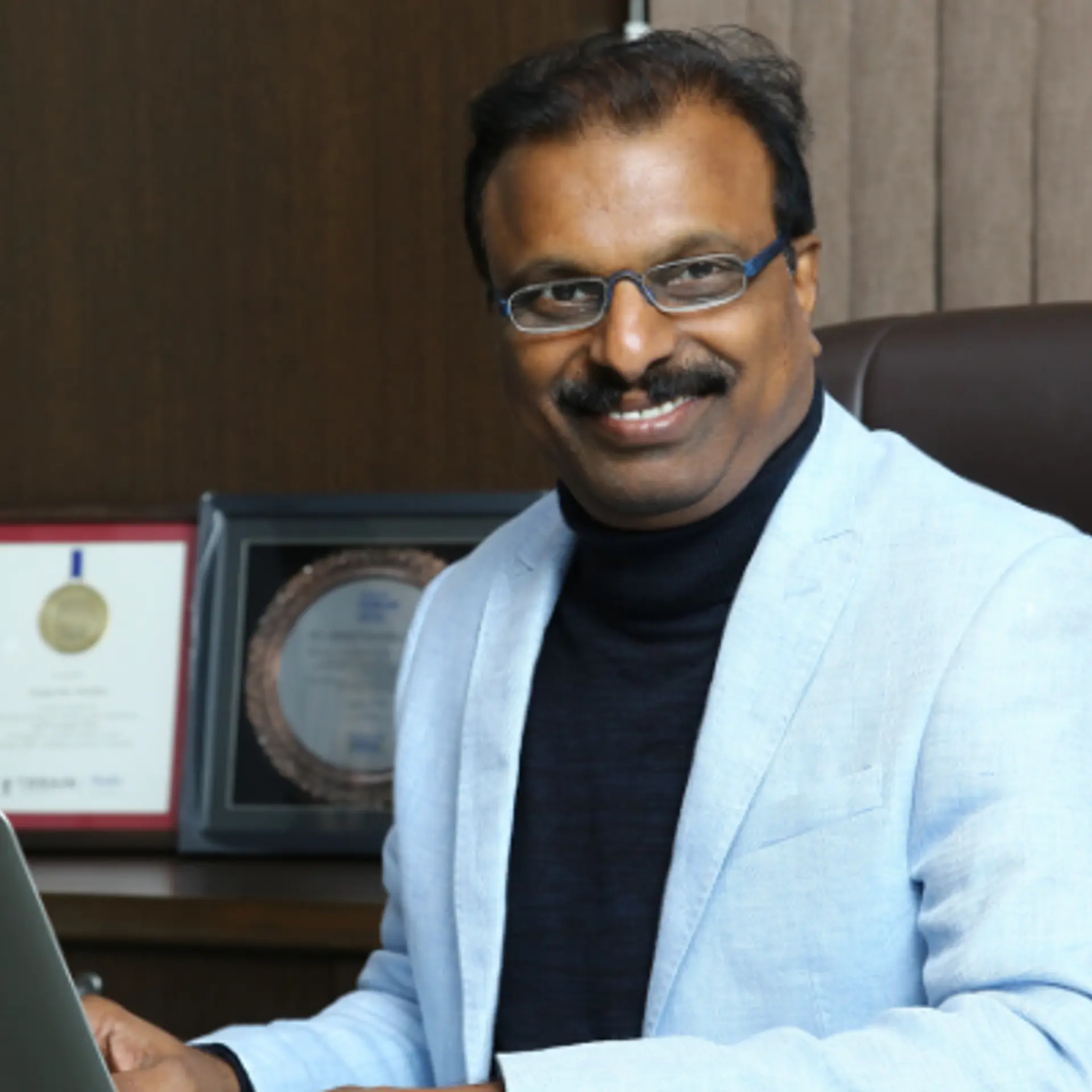Sharing profits with chefs, The Good Food Labs is bringing fine dining to living rooms
After stints at Masterchef India, Zomato, and OYO, Abhishek Bahadur started The Good Food Lab to bring chefs and patrons together through a unique profit-sharing model.
Would you pay around Rs 3,000 for a lavish and exotic nine course meal by a handpicked chef? Food entrepreneur and incubator Abhishek Bahadur (31) certainly thinks many people would pay that much. In fact, his belief is grounded in the initial success his chef incubator platform ‘The Good Food Lab’ has seen.
Launched in Mumbai in late 2017, this innovative incubator platform has already recorded a topline of Rs 25 lakh. In just 12 events, it has seen chefs put out 300 new dishes, over 40 new menus, and more than 1,000 fine dining elements.

Abhishek Bahadur, Founder, The Good Food Lab
Abhishek says that he had seen a huge influx of good culinary talent in the country. He attributes it to the great accessibility of information online. “However, I realised that these new and talented chefs were being confined in terms of what they could do and reach a large audience,” he adds.
In other words, he had identified a big gap and equally big opportunity in the culinary industry. As far as he knew, there was no mechanism to expose new chefs to fine dining enthusiasts unless they had already landed jobs at upscale restaurants or five star hotels. But to get such a job, a chef had to be proven. It was a classic chicken-and-egg situation for chefs.
Abhishek realised that he could leverage his experience in the industry to create a platform to bridge this gap. The answer he came up with was a model where an institution would collaborate with chefs to help them organise fine dining experiences outside the confines of restaurants or five star hotels.
This model was similar to business incubators, but it called for chefs. The incubator platform organises fine dining experiences in places other than upscale restaurants and five star hotels.
How it works
Abhishek says the platform is all about bridging the gap between the influx of good culinary talent in India and the opportunities that lay awaiting for them.
Thus, the incubator platform for chefs is essentially a way to bring chefs and patrons together. This way, the chefs are not only given more exposure but also have their skills improved through a feedback mechanism. They can also be encouraged to set out on their own.
Abhishek says, “To bring chefs and patrons together, we first do research to pick the best chefs and curate a menu on a monthly basis. We then rent out apartments of people in our network, friends, patrons, or just a regular Airbnb hotel.”
The incubator then converts the living rooms of those homes into restaurants, for a period of six hours, where guests are invited for fine dining experiences. Here, they are served the food prepared by chefs handpicked for the event.
Cuisines range all the way from Indian, Pan-Asian, Italian, Japanese, Contemporary American to pastries and other European styles.
“These culinary experience events are usually priced between Rs 2,800 and Rs 3,000 per person for a seven to nine course meal. The cost of ingredients and labour dictates the final cost,” Abhishek explains.
Some ingredients are difficult to source and may not be readily available. For instance, truffles and scallops are not easy to source and would add to the cost of the dish. But Abhishek has figured out a way to make the experience more economical for his patrons.
“We have a variable pricing model based on the feedback received by our guests. Not everyone wanted a seven to nine course meal, but preferred three to four courses,” he says. “So, guests can also opt to pay around Rs 1,800 to Rs 2,000 per person for this shorter meal.”
The meals are designed by amateur chefs as well as established ones. “The vision is to push the barriers of culinary art while making it accessible for all kinds of chefs,” he says. “At the same time, we also seek to deliver unique experiences to fine dining enthusiasts.”
The business model
Abhishek has experience working with brands such as Zomato, OYO Cafe, and Masterchef India, and helped set up and grow the Mumbai-based food brands The Herbiary and Food Darzee. Abhishek has also worked with various hotel kitchens. Leveraging his rich experience in the food and hospitality industry, he has come up with a profit-sharing model between The Good Food Lab and partner chefs.

An Asian Corn Chowder dish being prepared
“The model revolves around the chefs we partner with. Unlike a pure aggregator, The Good Food Lab facilitates chefs by providing them infrastructure, logistics, and staff support on a profit-sharing model,” he says.
This means The Good Food Lab and the chefs split the profits made from hosting the fine dine events. The chef incubator platform also covers some portion of the costs involved in making the food. “This way, the risk for the chef is minimised, and it also ensures both parties have skin in the game,” Abhishek explains.
At an operational level, the chefs focus on preparing the food while The Good Food Lab organises and takes care of the decor, venue, procurement services, logistics, etc. Marketing and ticket sales, however, is a shared responsibility between chefs and the incubator platform.
But even with a business model that seeks to reduce risks, succeeding in the fine dining industry is never easy. The Good Food Lab relied on Abhishek’s friends and family for the launch. It is bootstrapped as investors required a proof of concept before funding it.
However, being bootstrapped has helped it innovate and move away from industry norms. Abhishek says that limited resources also made the company prudent in resource allocation. “One core financial principle is not to allocate resources which are fundamentally loss making,” he says.

A pop-up venue by The Good Food Lab in Bandra, Mumbai
Abhishek says the incubator platform has also seen many on-ground challenges, such as refrigerator compressors stopping on critical days, the staff falling sick, and carrying crockery up three floors by stairs because the lift didn’t work.
To eliminate these, the platform is constantly striving to make its operations more efficient.
“Currently, we utilise existing technology ecosystem and enterprise (SaaS) solutions. We also have a tech roadmap to help the brand scale because as at the core, we are an asset-light concept,” he explains.
The business seeks to use available tech to make all operations more efficient. Abhishek says this includes “demand ops, supply ops, vendor relations ops, fin-ops and service ops.”
Making an impact
The Good Food Lab has exposed hundreds of patrons to new dishes and upcoming chefs. Its customers have also been able to explore a whole new dimension of eating outside in a much more casual yet intimate vibe, Abhishek says.
Some chefs have also become entrepreneurs after getting their creations sampled and critiqued, he adds. “We’ve now started doing a fun or casual format as well, where people now know that they need not settle for a pasta when they can have an arancini or a panna cotta,” he says.
The Good Food Lab is presently looking for investors in order to scale its status as a fine dining brand and its operations.
“Since the acceptability of the product is high, both from a supply and demand side, the primary challenge is to get some muscle-power to scale. We’re looking at prospective investors who can not only bring in that fuel to power the growth but also share the vision to create solutions for the F&B industry in general,” Abhishek explains.
The incubator platform also seeks to build a partnerships with stakeholders in the entertainment and lifestyle industry. This way, it plans to reach out to a wider audience and increase its customer base.
At the same time, it wants to remain a scalable and asset-light company and tap into every opportunity it gets.
ALSO READ:
Trying to lose weight? Food Darzee tailors diets, delivers 4 keto meals for Rs 900 a day
Meet Foodlink’s Sanjay Vazirani, the catering hero of Deepika-Ranveer wedding







